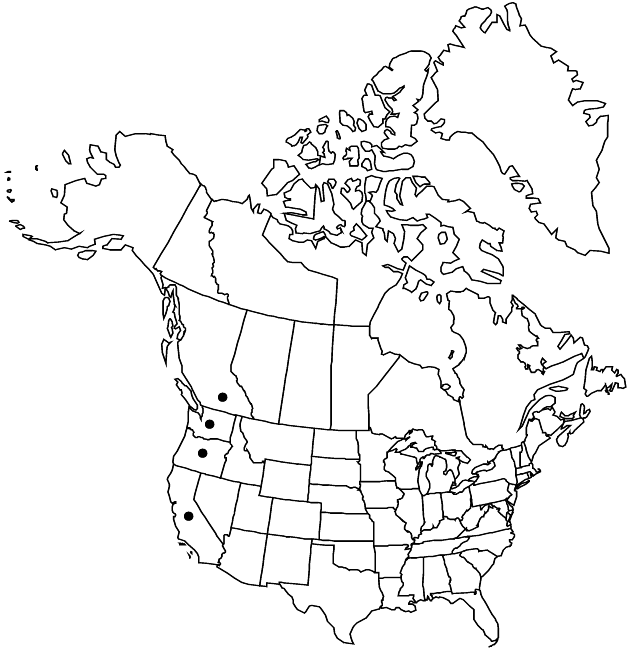Balsamorhiza deltoidea
Trans. Amer. Philos. Soc., n. s. 7: 351. 1840.
Plants 20–90 cm. Basal leaves: blades green, deltate or rounded-deltate to triangular-deltate, 10–25+ × 7–15 (–20) cm, bases cordate to sagittate, margins usually crenate to dentate (at least near bases), sometimes entire, apices acute, faces usually sparsely hirtellous to hispidulous, sometimes glabrous (usually glanddotted, sometimes vernicose). Heads usually borne singly, sometimes 2+. Involucres campanulate to hemispheric 15–30+ mm diam. Outer phyllaries oblong to lanceolate or lance-linear, (12–) 30–40 (–60) mm, usually much surpassing inner, apices acute. Ray laminae 20–50 mm. 2n = 38.
Phenology: Flowering (Mar–)Apr–Jun(–Jul).
Habitat: Open hillsides, openings in chaparral or forests
Elevation: 60–1800(–2400) m
Distribution

B.C., Calif., Oreg., Wash.
Discussion
Balsamorhiza deltoidea varies in the crenation of the leaf margins. The variability may stem from an old hybridization with B. hookeri or other species of Balsamorhiza. Otherwise, B. deltoidea shows little significant variability except where it hybridizes with B. careyana in the narrows of the Columbia River Gorge.
Selected References
None.
Lower Taxa
"broader" is not a number.